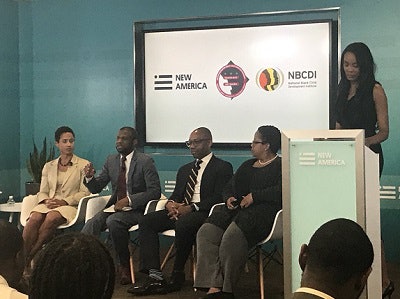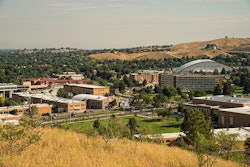For anyone who thinks school suspensions of students can’t be a life-altering experience, illuminating data may change their minds.
Statistics abounded Wednesday evening during a panel discussion titled “School to Prison Pipeline: Decriminalizing Public Education” held at New America, a nonpartisan foundation in Washington, D.C. Co-sponsored by New America, the National Black Child Development Institute (NBCDI) and the Greater Washington Urban League, the discussion highlighted wide disparities nationally.
Dr. Ivory A. Toldson, a professor in the School of Education at Howard University and editor-in-chief of the Journal of Negro Education, warned against a defeatist attitude in the nation’s schools, especially pertaining to Black students.
“It’s horrible for a city or a community to have so many suspensions,” Toldson said. “Because when you put them out in the streets, those communities pay for that. I would rather see them in school.”
Suspensions can be a sign of trouble ahead.
Suspended students, some research suggests, are more susceptible to at-risk behavior outside of the classroom than inside.
“Students with two or more suspensions, especially Black males, have a 60 percent higher chance of incarceration,” said panel moderator Ameshia Cross, director of policy and external relations at NBCDI.














